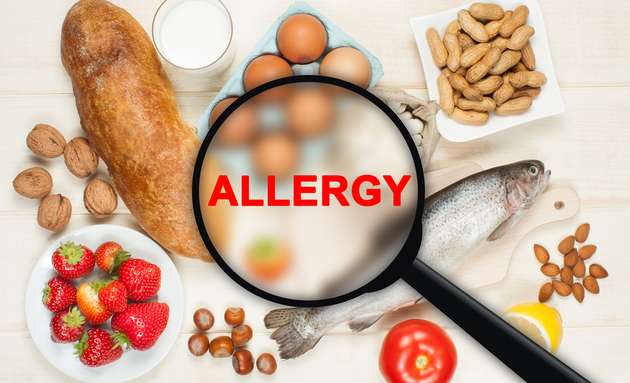
Food Allergy Vs Food Intolerance: What Is the Difference
A colleague says they don’t eat cheese because of a stomach ache, another’s child has a severe reaction to peanuts. Are both these reactions due to a food allergy?
Food allergy and food intolerance (food sensitivity), is often interchangeably used. However, there are quite a few stark differences between the two.
What Is a Food Allergy?

A food allergy is a response by your immune system to a food allergen - substances in foods that cause allergic reactions in your body. According to the Centers for Disease Control (CDC), 4% of all adults have some form of food allergy.
Your immune system produces specialised proteins called antibodies, that help detect potential threats to your body and releases chemicals to curb them. However, in most cases of food allergies, an antibody called Immunoglobulin E (IgE) mistakenly targets a protein from your food source, releasing a chemical called Histamine - which causes typical allergy symptoms.
When you’re exposed to a food allergen, the reaction will be almost immediate, and will recur every time you consume something you’re allergic to.
While any food can have an allergic reaction, the 9 main types of foods or food groups that cause the most allergic reactions are peanuts; tree nuts; soy; milk, egg; cereals; seafood; fish; and sesame.
What is Food Intolerance?

A food intolerance, also known as food sensitivity, is a gastrointestinal reaction to certain foods. It is not caused due to any changes in your immune system. The reactions will not show themselves immediately, and may take hours, or even days for reactions to occur.
Common food intolerances include lactose or milk, gluten, wheat, certain fruits, and some vegetables. For example, people who are missing the enzyme lactase which helps break down the sugars in dairy products, have lactose intolerance, which can result in various gastrointestinal problems. Similarly, gluten is a protein found in grains like wheat and barley, and is known to cause certain conditions of food intolerance.
If you have a food intolerance, you may be able to eat small amounts of the foods that cause reactions, without too much trouble.
What Are the Differences in Symptoms Between Food Allergy and Food Intolerance?
Food allergies can cause life-threatening reactions, as opposed to the milder symptoms of food intolerance. Here’s a quick guide to the differences in symptoms between food allergy and food intolerance:
|
Food Allergy Symptoms |
Food Intolerance Symptoms |
|
Rash, hives, itchy skin |
Acne |
|
Eczema, dermatitis |
Inflammation, redness |
|
Redness and inflammation |
Dry Skin |
|
Shortness of breath |
Gas, bloating, cramps, constipation |
|
Chest pain or pressure |
Heartburn, acidity |
|
Anaphylaxis - a severe, life-threatening allergic reaction |
Headaches |
|
Irritability, mood swings |
How Do You Know If You Have a Food Allergy or Food Intolerance?

A study has revealed that 1 in 3 people report a food allergy, although only 1 in 20 actually do. This comes from a lack of understanding of the clinical nuances of food allergy and food intolerance. Some even mistake normal responses to food as an allergy.
There are ways to know if you have a food allergy or a food intolerance. The three types of tests used to determine your condition are skin prick testing, serum-specific IgE testing, and oral food challenge.
Do not try over-the-counter, or at-home test kits. Visit your doctor and devise a plan, based on your medical history and current health condition to know exactly if you have a food allergy or a food intolerance.
How Are Treatments and Diets Different for Food Allergy and Food Intolerance?

Speak to your doctor and remove any foods that can cause allergies or intolerance from your diet.
If you’re unsure of which food is creating a problem, try an elimination diet - an eating plan that removes the most common foods that are capable of causing allergic reactions or intolerance.
If you already know you have a food allergy, carry your anti-allergic medication at all times, and specify what foods or food derivatives you cannot consume when eating out at restaurants, events, or invitations.

